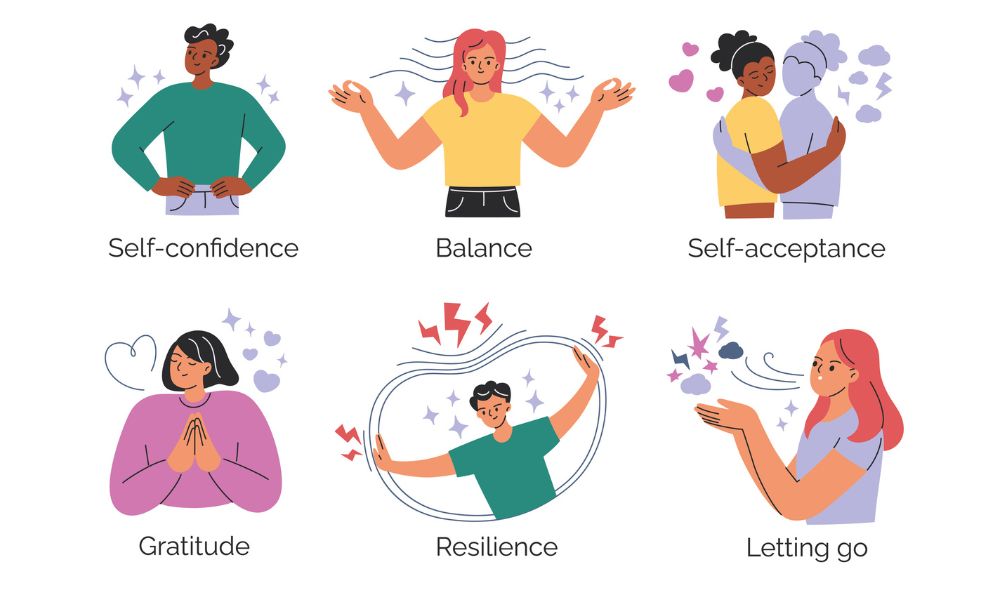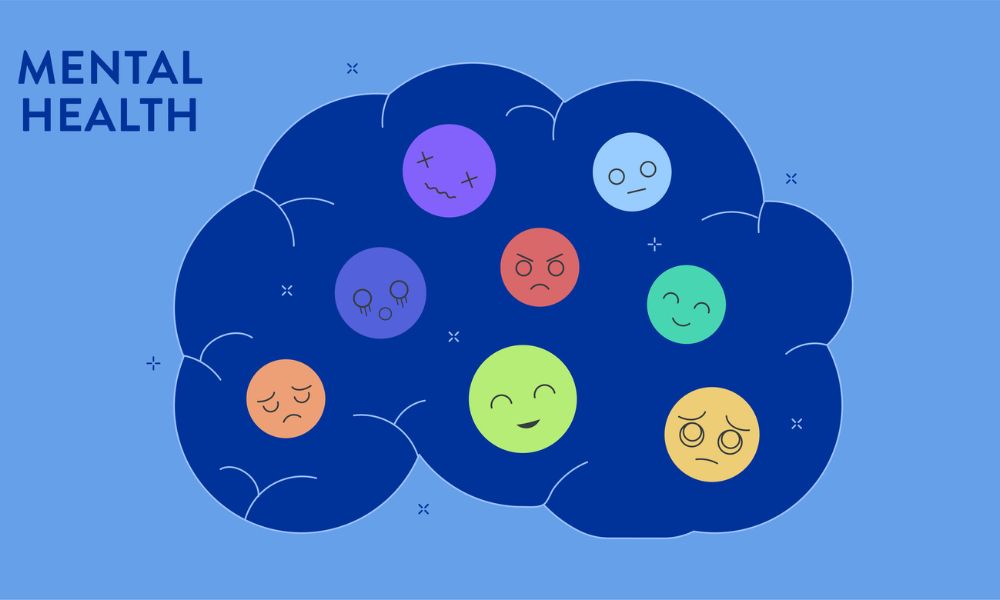Anger is a natural emotion we all experience, but when it affects our work life, it can lead to serious issues. Managing our anger effectively can enhance our productivity and improve our relationships at work. In a professional environment, unchecked anger may hinder communication and collaboration, impacting our career growth. By learning how to control this emotion, we can create a more positive work atmosphere and foster better teamwork.

Implementing anger management techniques not only helps us handle immediate conflicts but also supports our overall mental health. Practices like mindfulness and emotional control allow us to respond to stress more effectively. This shift can lead to greater resilience in the workplace, enabling us to tackle challenges head-on without losing our composure.
As we focus on improving our anger management skills, we set the stage for a more fulfilling career. Addressing our emotional responses with intention empowers us to build stronger connections and navigate workplace dynamics more smoothly.
Key Takeaways
- Effective anger management boosts our productivity and workplace relationships.
- Mindfulness techniques help us handle stress and enhance mental health.
- Building a supportive work environment fosters resilience and adaptability.
Understanding Anger in the Workplace

Recognising the roots of anger in the workplace helps us manage our emotions more effectively. By understanding what triggers our anger and differentiating it from frustration, we can develop better coping strategies and improve our work environment.
Causes and Triggers of Anger
Anger often stems from various causes, which can include unmet expectations, stress, and negative emotions. When we feel overwhelmed at work, stress can build, leading to an emotional response that might manifest as anger.
Common triggers might include:
- Missed deadlines: These can create feelings of frustration and failure.
- Conflict with colleagues: Disagreements can escalate quickly if not addressed.
- Feeling undervalued: When our contributions go unrecognised, it can lead to resentment.
Understanding these triggers allows us to identify patterns in our anger. By recognising these instances early, we can take steps to address issues proactively rather than reactively.
Anger vs. Frustration
While anger and frustration are closely related, they are not the same. Anger is a strong emotional response often linked to feelings of injustice or wrong. In contrast, frustration arises from feelings of inability to achieve a goal or expectation.
We often experience frustration as a build-up of stress. This can lead to anger if the feeling of being stuck continues. For example:
- Frustration might involve a slow computer that hampers our work.
- Anger could emerge if we feel we are not being listened to about our concerns.
By recognising these differences, we improve our emotional awareness. This understanding empowers us to address the source of our frustration before it turns into anger.
Effects of Anger on Professional Performance

Anger can deeply affect our work life and how we relate to others. It can lead to reduced productivity and strain our professional relationships, which are crucial for a harmonious workplace.
Impact on Productivity
When we experience anger, it may cause a significant loss of productivity. Research shows that anger can lead to difficulty concentrating on tasks.
A short temper may result in frequent mistakes, which can take time to correct. We may also find ourselves needing breaks to cool down, further disrupting our workflow.
In stressful situations, our ability to think clearly diminishes, preventing effective problem-solving. This can contribute to a cycle where unresolved anger leads to more stress and, subsequently, lower productivity.
Anger and Interpersonal Relations
Anger can strain our relationships with colleagues. When we express anger inappropriately, it can create a negative environment.
We may unintentionally push others away, making teamwork more challenging. Effective communication can suffer, leading to misunderstandings.
Colleagues might feel uncomfortable or even fearful around us, which can hinder collaboration. Furthermore, unresolved anger can lead to conflicts that are difficult to manage, affecting morale and team cohesion.
Learning to manage our anger helps us maintain healthy interactions at work, promoting a more positive atmosphere.
Anger Management Techniques

Managing anger effectively requires a variety of techniques that we can use to express our feelings and improve our interactions. These methods can help us stay calm and communicate better, reducing workplace conflict and enhancing our careers.
Relaxation and Breathing Exercises
One effective way to manage anger is through relaxation and breathing exercises. We can use simple methods, such as deep breathing, to calm our minds and bodies. Taking a few moments to inhale deeply through the nose and exhale through the mouth can help lower our heart rate and stress levels.
Practising progressive muscle relaxation is another useful technique. This involves tensing and then relaxing different muscle groups. By focusing on the sensation of relaxation, we can release pent-up tension and settle our minds.
Incorporating these exercises into our daily routine can provide us with tools to handle anger when it arises. Techniques like guided imagery or mindfulness meditation can also encourage a peaceful mindset.
Cognitive Restructuring
Cognitive restructuring involves changing the way we think about anger-inducing situations. When we feel anger, we often focus on negative beliefs. By recognising these thoughts, we can challenge and replace them with more balanced viewpoints.
For instance, instead of thinking, "It's unfair that I have to do all the work," we might reframe it to, "I can share my concerns with my team." This shift allows us to feel more in control and less overwhelmed.
This technique also involves identifying triggers, helping us understand our anger better. By tracking situations that provoke us, we develop strategies to handle them differently. Over time, this can create a healthier mindset towards anger.
Improved Communication
Improved communication plays a crucial role in managing anger. We can express our feelings calmly and clearly while avoiding blame. Using "I" statements, such as "I feel frustrated when deadlines are missed," helps us share emotions without attacking others.
Active listening is equally important. By paying attention to what others say, we demonstrate respect and understanding. This mutual respect can reduce misunderstandings and prevent anger from escalating.
We should also practise assertiveness. This means standing up for ourselves in a respectful manner. Being assertive helps us communicate our needs effectively without being aggressive, making it easier to resolve conflicts.
Problem-Solving Strategies
Implementing problem-solving strategies allows us to address the root causes of our anger. Instead of focusing solely on our feelings, we can break down problems into manageable parts. This involves identifying the issue, brainstorming possible solutions, and evaluating the best option.
We can work together with colleagues to find solutions that satisfy everyone involved. This collaborative approach not only reduces feelings of anger but also builds teamwork.
Creating a plan of action can help us feel empowered. Setting clear, achievable goals for ourselves can also enhance our ability to deal with frustrating situations. By focusing on solutions rather than dwelling on problems, we can foster a more positive work environment.
Mindfulness and Emotional Control

Mindfulness plays a key role in managing our emotional states, particularly during stressful times at work. Practising mindfulness can help us become more aware of our feelings and reactions. This awareness is essential for regulating emotions and maintaining composure, especially when confronted with anger.
The Role of Mindfulness
Mindfulness encourages us to stay present and observe our thoughts without judgment. By focusing on our breath or the sensations in our body, we can create a space between stimulus and response. This pause gives us time to process how we feel about a situation.
In practice, we can use techniques such as deep breathing or guided mindfulness exercises. These practices can lower stress levels and enhance our ability to respond rather than react impulsively. Engaging in mindfulness regularly can lead to better emotional control and improve our interactions with colleagues.
Regulating Emotional Responses
When we encounter anger or frustration at work, our emotional responses can lead to poor decisions. Mindfulness enables us to recognise these feelings early and choose a healthier way to react. This can involve simply taking a minute to step away from a heated situation.
We can also utilise anger management therapy techniques alongside mindfulness. For instance, journaling our feelings can help us articulate what triggers our anger and how we can manage it more effectively. Being mindful helps us regain control, leading to better workplace relationships and overall job satisfaction.
Long-Term Strategies for Managing Anger
To effectively manage anger in our work and personal lives, we can adopt specific lifestyle changes and seek professional help. These strategies can help us better understand our anger triggers and equip us with tools to cope calmly and constructively.
Lifestyle Changes
Making thoughtful changes to our daily routines can greatly impact how we manage anger. Regular exercise is one of the most effective ways to release built-up tension. Activities such as walking, running, or yoga can help us feel calmer and more in control.
A balanced diet also plays a crucial role in our mental health. Consuming plenty of fruits, vegetables, and whole grains can improve our mood. Staying hydrated and limiting caffeine or sugar can prevent irritability.
Mindfulness practices, like deep breathing or meditation, can help us stay grounded. We should consider setting aside a few minutes each day to practise these techniques. Additionally, getting adequate sleep is vital, as fatigue can heighten anger responses.
Seeking Professional Help
Sometimes, we may find that our anger is more challenging to manage on our own. In such cases, seeking professional help can be beneficial. Anger management therapy provides a safe space to explore our feelings and identify triggers.
A therapist can teach us effective coping strategies tailored to our needs. This often includes relaxation techniques, problem-solving skills, and communication methods. Joining support groups can also connect us with others facing similar challenges, fostering a sense of community.
It’s important to remember that asking for help is a sign of strength. By taking this step, we commit ourselves to improving our mental health and managing our anger better in everyday situations.
Building a Supportive Work Environment
Creating a supportive work environment plays a crucial role in managing workplace anger and frustration while boosting productivity. We can foster a space where open communication and support systems thrive.
Creating an Open Culture
An open culture encourages employees to express their feelings and frustrations without fear. We should promote regular feedback sessions where everyone can share their thoughts. This approach helps identify issues before they escalate into anger.
We can implement an open-door policy, allowing staff members to approach management with concerns. Regular team meetings can also help, as they provide an opportunity to discuss challenges and solutions. Encouraging a culture of respect and understanding can lead to healthier workplace relationships.
Training sessions on communication and emotional intelligence equip our team with skills to handle conflicts. By developing these competencies, we reduce potential sources of frustration and anger.
Support Systems and Training
Support systems are vital in helping employees manage their emotions. We should offer access to counselling services or stress management workshops. These resources allow individuals to cope with workplace pressures effectively.
Training programs focused on anger management can also be beneficial. We can host workshops that teach employees how to recognise triggers and control their responses. By learning to address frustration constructively, productivity can improve significantly.
Additionally, peer support groups can provide a sense of community. When employees feel supported by their colleagues, they are less likely to experience anger and frustration. Encouraging team-building activities can strengthen these connections even further.
Crisis Management and De-escalation
In high-stress situations, effective crisis management and de-escalation techniques are vital for maintaining a safe and productive work environment. We can take specific steps to handle extreme cases of anger and develop a structured response plan that minimises conflict and promotes calm.
Handling Extreme Cases
When dealing with extreme cases, such as road rage or workplace outbursts, it’s important to approach the situation carefully. Our first priority is safety for everyone involved. Here are some steps we can take:
- Stay Calm: We must remain composed to avoid escalating the situation further.
- Listen Actively: Show empathy by acknowledging the other person’s feelings. This can help reduce their anger.
- Set Boundaries: If someone is aggressive, it's essential to clearly state what behaviours are unacceptable.
By addressing the problem directly and respectfully, we can reduce tension. Effective communication is key in these difficult moments.
Developing a Response Plan
To prevent crises from escalating, we need a comprehensive response plan. This plan should include:
- Training: Regularly training staff on conflict resolution and anger management techniques helps us prepare.
- Resources: Provide access to mental health resources for employees to express anger constructively.
- Clear Procedures: Establish clear protocols for reporting and handling anger-related incidents.
By having a structured response plan, we can create a safer environment. This proactive approach not only aids in survival during a crisis but also supports overall employee well-being by reducing stress levels in the workplace.
Fostering Resilience and Adaptability
Fostering resilience and adaptability is crucial for managing our emotional state at work. When we face stress and frustrations, our ability to bounce back can determine our success.
To build resilience, we can follow these simple strategies:
-
Stay connected: We should maintain strong relationships with colleagues and friends. This support network helps us during tough times.
-
Practice self-care: Taking time for ourselves is essential. Regular exercise, healthy eating, and sufficient sleep improve both our mental health and our ability to cope.
-
Embrace change: Instead of resisting change, we can view it as an opportunity to grow. Adapting to new situations helps us become more flexible.
-
Develop problem-solving skills: Tackling challenges head-on makes us stronger. We can break problems into smaller, manageable steps.
-
Reflect on experiences: Taking time to think about our challenges allows us to learn from them. Journaling can help us process our emotions and identify patterns.
By focusing on these areas, we can improve our resilience. When we manage our anger effectively, we create a positive emotional state. This reduction in stress contributes to a healthier work environment, which benefits our careers.
Frequently Asked Questions
In this section, we will explore common questions related to anger management in the workplace. Understanding effective strategies and the impacts of anger can significantly enhance our professional lives and relationships with colleagues.
What are effective strategies for expressing anger in a professional manner?
We can express anger professionally by using "I" statements to communicate feelings without blaming others. Taking deep breaths or pausing before responding helps us to think clearly. Additionally, discussing issues privately, rather than in front of others, maintains a respectful work environment.
What are the potential impacts of anger on workplace dynamics and team performance?
Unmanaged anger can lead to conflicts that disrupt team harmony. It may create an atmosphere of tension and fear, which affects collaboration. When anger is addressed properly, it can enhance communication and lead to better problem-solving within the team.
In what ways can anger management contribute to career advancement and success?
Effective anger management demonstrates professionalism and emotional intelligence, which are valuable traits in the workplace. This can open doors to leadership opportunities. Additionally, managing anger well allows us to build positive relationships that are crucial for networking and career growth.
How can one handle feelings of anger and resentment towards colleagues constructively?
We can handle anger towards colleagues by seeking to understand their perspective. Engaging in open conversations can help clear misconceptions. It’s also beneficial to focus on finding solutions rather than dwelling on the problem, which fosters a collaborative environment.
What are the signs that a job is negatively affecting one's emotional wellbeing, specifically causing increased anger?
Signs of increased anger can include frequent irritability, feeling overwhelmed by small issues, and persistent negative thoughts about work. If we find ourselves constantly dreading work or experiencing physical symptoms like headaches or tension, it may signal that our job is impacting our emotional health.
Why is it important to manage anger effectively within a professional context?
Managing anger effectively is crucial to maintaining a positive work atmosphere. It supports clear communication and helps prevent misunderstandings. When we handle our anger well, we not only protect our own wellbeing but also contribute to a healthier, more productive workplace for everyone.





















